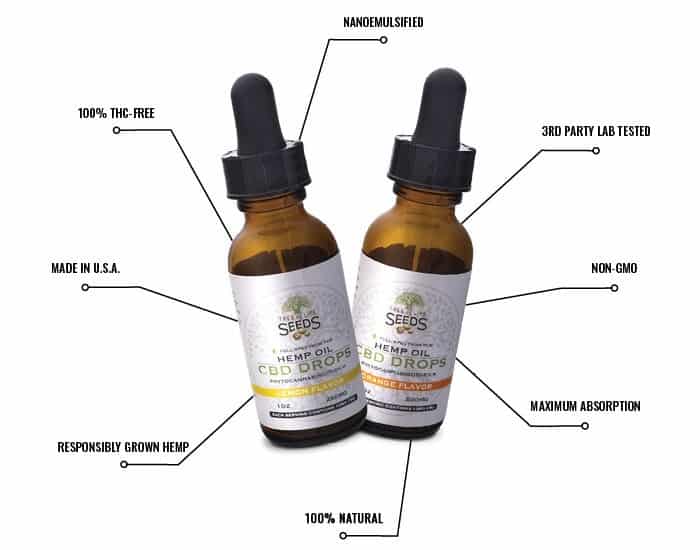Estimated reading time: 7 minutes
As cannabis continues to gain legalization and acceptance, more people are beginning to explore its therapeutic benefits. However, this is not without controversy. Currently, there is no clear consensus on whether or not nurses can use CBD oil. Accordingly, this blog aims to provide clarity on the subject matter by addressing some of the key questions that nursing professionals may be asking. Specifically, we’ll discuss what CBD oil is, its uses, and the potential consequences for nursing professionals who choose to use it. Hopefully, after reading this article, you’ll have a better understanding of whether or not CBD oil is acceptable for nurses.
What is CBD Oil?
Nurses are always looking for ways to improve patient care and reduce medication errors. One of the most promising ways to do this is by using CBD oil. CBD oil, also known as cannabidiol is a product derived from the cannabis plant that has a wide range of potential health benefits. Some of the benefits that nurses can take advantage of include reducing inflammation, aches, and improving anxiety and depression symptoms. While there is still some research to be done, CBD oil is a promising tool that can be used in the health care setting to improve patient care.
What’s the Difference Between CBD Oil Derived from Marijuana and CBD Oil Derived from Hemp?
Let’s start with the basics. CBD oil is derived from industrial hemp, which is a type of cannabis sativa plant that doesn’t contain any psychoactive properties. Hemp is related to marijuana, but cannabis plants grown for recreational use (marijuana) will contain high levels of THC – the chemical that causes intoxication and effects like paranoia and impairment in coordination. As for CBD oil itself, it comes from the flowers and resin of the female cannabis plant. Unlike THC-containing products, which are used mainly for recreational purposes or as a source of psychoactive effects, CBD oil has been shown to have a wide range of medical benefits – including helping with anxiety and chronic pain relief. It’s also been reported to reduce inflammation and suppress seizures; however, more research needs to be done in this area before definitive conclusions can be drawn.
Not all CBD oil is the same
There is CBD oil with and without THC. Thanks to the Farm Bill, under Federal Law CBD can be sold with 0.3% THC. This product is referred to as full-spectrum oil. If taken regularly this minute amount of THC can build up in your system. THC-Free CBD products are referred to as broad-spectrum. Nurses that use CBD products should only consume THC-Free Broad-Spectrum CBD products. Don’t fail a drug test. For your protection make sure to request a batch specific Certificate of Analysis (COA) on any cannabidiol product that you plan to consume.

How Does CBD Oil Consumption Affect Medical Professionals?
Healthcare professionals are starting to use CBD as part of their treatment plan for a number of different medical issues. Nurses in particular have found it to be very beneficial for treating a wide range of health conditions, from chronic pain to seizures. CBD is non-psychoactive and is derived from hemp – two factors that make it an ideal choice for medical professionals who want to use cannabis-based products without having to worry about the recreational usage implications. Additionally, CBD has been shown to have a host of benefits for human health, including reducing anxiety, anti-inflammatory, and depression; promoting better sleep; improving cognitive functions; and aiding in weight loss.
Uses of the CBD Oil
Nurses are always on the go and need to be able to provide excellent care to their patients. One way they can do this is by with CBD use. Cannabidiol is a natural pain reliever and has many other therapeutic benefits. It can be used to help with conditions like anxiety, chronic pain, and more. As a nursing professional, it’s important to be aware of the uses of CBD so you can best care for your patients. Keep in mind that CBD oil is not recommended for pregnant women or children, as there is still some unknowns about its effects. However, as you become more educated about the oil, you’ll be able to use it in a safe and beneficial way for your patients.
The Consequences Can Destroy Your Medical or Nursing Career If You Test Positive for ‘Marijuana’. CBD oil is legal in all 50 states, but there are some restrictions.
If you test positive for marijuana, the consequences can destroy your medical or nursing career. Here’s what you need to know about CBD oil. CBD oil is a type of cannabis oil that is derived from the hemp plant, but does not contain THC. As such, it is legal to use in many states, including California. Because cannabidiol does not contain THC, it is not psychoactive and does not cause intoxication or euphoria. It is also non-addictive and does not cause marijuana-related side effects such as anxiety or paranoia. Because CBD oil is not psychoactive, it is often used to treat conditions such as chronic pain, anxiety, and PTSD. It is also being used to help reduce symptoms of epilepsy and other medical conditions. Because CBD oil is not addictive, it can be used in conjunction with other medications without causing any side effects.
Is it acceptable for nurses to use CBD Oil?
Nurses all across the United States are not only using CBD but recommending it to others. However, it may be best to ad lib and consult with your superiors on a case-by-case basis. In the meantime, you can still use CBD oil in accordance with the law. Remember to be cautious and keep an eye out for future changes, as they may impact your ability to use CBD oil in the future!
Considerations for the nurse
Since CBD oils are not psychoactive, nurses can use them without a prescription. In fact, many states now allow nurses to use cannabis products as part of their care. As a registered nurse, it is important that you are aware of the current medical cannabis laws in your state. This includes knowing how to use CBD oils safely and effectively. Make sure to consult with your doctor or pharmacist about the best way to use CBD oil. Additionally, as a nurse, it is important to be up-to-date on the latest research on cannabis and its effects on health. By doing so, you can provide the best care possible for your patients.
Frequently Asked Questions
What are some of the benefits of CBD oil for nursing patients?
CBD oil is a great option for nursing patients because of its many health benefits. Some of the ways it is used by nurses include as topical treatments for skin conditions like eczema or psoriasis and as supplements to help ease nausea and vomiting. CBD oil can also help relieve pain, inflammation, anxiety, and insomnia – among other things.
Can nurses use CBD oil?
Yes, nurses can use CBD oil in the clinical setting. However, as with any new treatment or therapy, it’s important to do your own research before using it in the clinical setting.
What are the risks and benefits of using CBD oils by nurses?
Preliminary studies suggesting that CBD may help in reducing inflammation and pain. Additionally, anxiety and depression are possibly improved with the use of CBD. Therefore, it is always important to speak to your doctor before taking any supplements, as they may contain other harmful ingredients or side effects.
Conclusion
CBD oil has recently become a popular treatment option for a variety of medical conditions. However, due to its marijuana-related classification, nursing professionals may face challenges when using this oil. If you are considering using CBD oil, it is important to understand the implications and legalities involved. Speak to your superior to get their opinions on the matter first. Additionally, be sure to consider the implications of using CBD oil on your nursing career before making any decisions.
Only THC-Free Broad-Spectrum CBD products should be used by nurses. No matter what, don’t fail a drug test. For your own safety, make certain to get a batch-specific Certificate of Analysis (COA) to review all of the cannabinoids in each CBD product you plan to consume.
Statements are not Medical Claims and have not been evaluated by the Food and Drug Administration (FDA). CBD products are not intended to diagnose, treat, cure, or prevent any disease. If you have a health condition that you believe CBD may help consult with your health care provider and see if they believe CBD is right for you. We are not legal experts and are not providing legal advice. You should consider consulting a legal professional for legal opinions.

